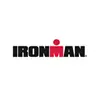4. Work With a Coach
A good coach can help you dramatically improve your technique, come up with tailored interval sessions to improve your speed and coordinate your program to ensure you're getting the most out of your training time. Many coaches can help you do all that from a distance, too.
5 Reasons to Join a Triathlon Club
5. Get Stronger
While strength will almost always be trumped by technique (just jump in the pool with a bunch of 11 and 12-year-old age group swimmers sometime—while you are likely much stronger, their impressive technique allows them to swim circles around you), strength training does have it's place in your training. You can certainly improve your bike performance with some added strength, while it's also a great way to address muscle imbalances that can lead to injury. As he nears his 40th birthday, Craig Alexander stresses that strength training has become an important part of his training program as a way to prevent injury. His improved core strength has also helped him maintain his form during the latter stages of the bike and run in races.
More: How to Create Your Ironman Nutrition Plan
6. Use a heart Rate Monitor or Power Meter
Many successful IRONMAN and 70.3 competitors don't ever use a heart rate monitor or power meter, but these training tools can help you get the most out of your training time. Used properly, a heart rate monitor will help you work at an appropriate level—making sure your hard workouts will be hard enough, and your recovery sets easy enough to ensure that you're not overtraining.
Fuel for Tomorrow: The 3 R's of Recovery
To get the most out of a heart rate monitor, though, you need to figure out exactly what your various training zones are. While there are lots of formulas that can give you an approximate value for your maximal heart rate, they aren't particularly accurate—especially for fitter athletes. A coach or exercise physiologist can administer specific testing that will give you more accurate numbers.
If faster bike splits are your goal, a power meter can certainly help. They allow you to measure the direct energy you are putting into the pedals, which gives you the ability to pace evenly and to your exact ability for the length of your race (or even during interval training). Racing with power can help not only your bike split, but can leave you with much "fresher" legs for the run as you can avoid spikes in effort and save valuable energy for the last leg.
More: 10 Pro Athletes Who Have Done an Ironman
 Sign up for an IRONMAN.
Sign up for an IRONMAN.



